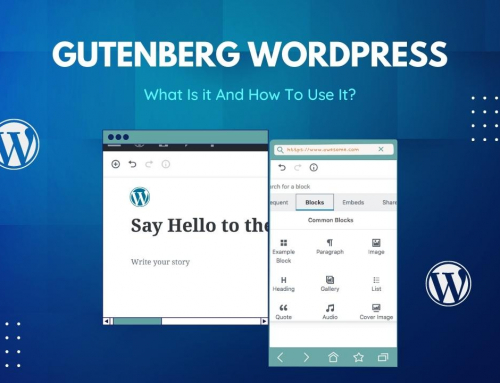Are you looking to start your blog but can’t find out how to choose the most straightforward blogging platform? It’s a troublesome choice since several different blogging platforms are out there. How do you find out which one is right for you?
What is a blog?
Before we dive into the blogging platform wars, let’s figure out what a blog is.
A blog is a website on which you can add information of any type. It offers visitors personal, unique, and valuable knowledge. You can upload posts and publish articles of different natures on the blog site, e.g., articles related to health, education, business, fashion, lifestyle, entertainment, etc.
What are blogging platforms?
Blog platforms are, in a nutshell, web applications that let you do blogging, publishing, and marketing on the web. You can build your own blog on these platforms. They provide you with free and premium services to create and manage your blogs over there.
Many people have blog platforms that they’ve been using for a long time and they’ve customized them and tweaked them for their specific needs.
On the other hand, many people still need to develop their own blog platforms and are just looking for a new and exciting place to add their stuff. So, if you’re searching for a new platform, you have a wide variety of options to choose from.
Which blogging platform will be the best in 2022?
Take a look at our free guide to the 5 biggest blogging platforms in the market and learn which one is right for you. We’ve also included some more detailed case studies to help you make up your mind about your blogging platform, and we’ll even let you compare them to our own Blog.
This guide will help you to figure out which blogging platform is best for your blog. Once you know that, you can start your journey to build an amazing blogging site that people will visit regularly.
1. WordPress.org

WordPress is an open-source platform available for Windows, Mac, and Linux. This platform was originally started by Matt Mullenweg in 2003, and it’s been completely redeveloped since then. Amazingly, you can create any type of blog using WordPress which is the best content management system. WordPress has more than 24 million blogs across the world. WordPress is by far the most popular blogging platform and is used by a majority of bloggers. Although, WordPress is actually easier than Blogger.com.
Advantages
-
Free to use.
-
It is easy to manage and SEO-friendly.
-
It is very cost-effective.
Dis-advantages
-
Manually backups of your blog.
-
Need to manage blog site.
2. Blogger
Blogger is the most popular blogging platform out there. However, its features have gone outdated in the last few years, so many bloggers have switched to other platforms such as WordPress.
Blogger is probably the most well-known blogging platform around. It is free to use, and many of the best bloggers, marketers and business owners use it as their blogging platform of choice. Some people choose it because it’s free and they don’t have to worry about their posts being seen or stolen by a competitor.
Advantages
-
Free to use
-
Easy to manage
-
It has robust Google’s secure platform advantage
Dis-advantages
-
You can’t add any new feature to it
-
Have limited templates to use
-
It is not an up-to-date platform and does not support new features
3. Squarespace

Squarespace was started in 2003 and now it has millions of users. It is used for designing websites for small companies. It is easy to use because of the drag and drop feature and has beautiful templates.
Advantages
-
Easy to use for non-tech individuals
-
It has beautiful templates
-
It provides separately SSL with domain names
Dis-advantages
-
It has limited features
-
It gives limited access to some tools and services
4. Weebly

Weebly is a good website builder owned by Square’s platform. It is easy to use. It provides free blog templates to use.
Advantages
-
Easy to use
-
It is integrated with Squarespace’s payment
Dis-advantages
-
Provides limited features for the free plan
-
It has an expensive paid subscription in comparison with other platforms
-
It doesn’t have a strong SEO feature
5. Hubspot CMS

Hubspot CMS is known as one umbrella as it is useful for all kinds of business websites; small or large companies. You can do multiple tasks here like managing the customer list, designing websites, sending newsletters, getting subscribers, and so on. On Hubspot, it is pretty easy to customize design layouts.
Advantages
-
Easy to use as it provides a drag-and-drop feature
-
It is SEO optimized
-
It provides free SSL protection
-
Hubspot host the website on its own
Dis-advantages
-
It is not free to use
-
It has an expensive paid subscription
-
The migration process is lengthy if you switch your blogging platform
Conclusion
Choosing the right blogging platform is an essential component of the blogging journey. It should be your guiding light to where you want to go in the blogging world. It is where your future lies. To have a successful blog you have to target the proper audience. Here is the step-by-step guide on how to find a target audience for your blog or website.
Preparing a long list of blogging platform choices will help you select the appropriate platform, but it’s important to keep in mind that each platform has its pros and cons, and its own set of advantages and disadvantages. While there are a lot of blogging platforms out there, you might find that they simply don’t fit your needs.
We prefer the Wordpress.org platform for blogging over many other platforms. It is easy to use, user-friendly, cost-effective and has more flexibility than other blogging platforms. If you want to know in detail then check our article “5 Reasons Why You Should Choose WordPress for your business website“. If you are unable to use WordPress.org, then your second option will be Hubspot because it has a drag-and-drop option at an affordable price.
We hope this article helped you in understanding different kinds of blogging platforms and choosing one of the suitable among them.
Have a look at our other very interesting article which is based on how to earn money from blogging.
Let us know If you have questions!













Leave A Comment